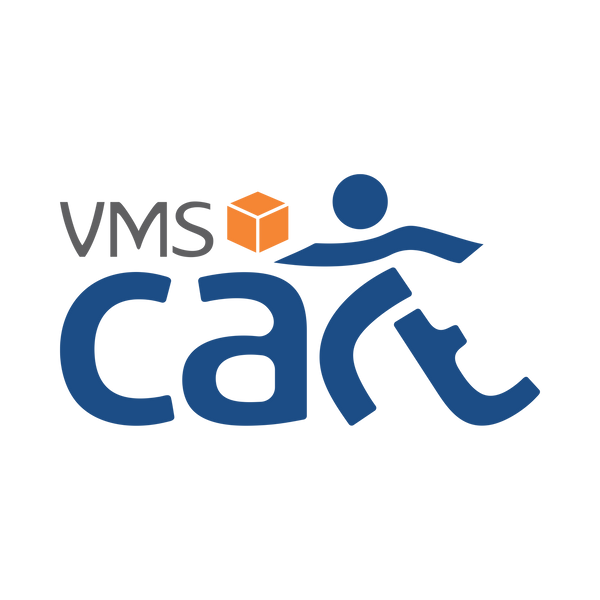When it comes to managing cash in any business, a cash counter machine is an essential tool that saves both time and effort while ensuring accuracy. However, with the plethora of models and features available, choosing the right one can be overwhelming. To help you make the right decision, this blog outlines seven key considerations you must evaluate before purchasing a cash counter machine for your business. Let's dive in.
1. What Type of Cash Counter Machine Do You Need?
Before anything else, you must identify the specific type of cash counter machine that fits your business needs. Generally, cash counters are divided into two categories:
- Basic Counting Machines: These machines only count the number of bills without differentiating between denominations. If you usually handle bills of the same denomination, this could be an ideal option.
- Mixed Denomination Counters: These machines not only count bills but also identify their denomination and provide the total value. They are perfect for businesses that deal with various denominations.
Think about the amount of cash you handle daily, and consider whether a mixed denomination machine or a basic counter is the best fit.
2. How Fast Is the Counting Speed?
The counting speed is a crucial factor, especially for businesses that handle a large volume of cash. Different models offer varying speeds, measured in bills per minute. Higher-end machines can process up to 1,500 bills per minute, while more basic models may handle around 600-800 bills per minute.
- Consider Your Business Size: For small or medium-sized businesses, a moderate counting speed may suffice. Larger businesses dealing with higher cash volumes should opt for machines with faster speeds.
Choosing the right counting speed will ensure efficiency and prevent bottlenecks in your cash handling process.
3. What Detection Features Are Included?
One of the most critical functions of a cash counting machine is its ability to detect counterfeit bills. Many advanced models are equipped with multiple counterfeit detection methods, such as:
- UV (Ultraviolet) Detection: Detects UV-sensitive markings on currency.
- MG (Magnetic) Detection: Identifies magnetic properties embedded in bills.
- IR (Infrared) Detection: Scans for hidden marks on genuine bills.
Ensure that your chosen machine has robust counterfeit detection features. This is especially important for businesses where cash fraud could significantly impact profits.
4. Does It Support Multi-Currency Counting?
If your business deals with international clients or processes multiple currencies, you’ll need a cash counter machine that can handle this complexity. Multi-currency counting machines are designed to identify, count, and provide accurate totals for different types of currencies.
- Multi-Currency Models: These machines are ideal for airports, hotels, and financial institutions that handle multiple currencies.
Be sure to check the list of supported currencies before making a purchase. Some models allow software updates to include additional currencies, which can be a valuable feature.
5. What Is the Capacity of the Cash Counter Machine?
The capacity of the cash counter machine refers to the number of bills the machine can handle at once. Machines come with different hopper and stacker capacities, which determine how much cash can be placed in the feeder tray and how much it can process in a single go.
- Hopper Capacity: Ranges from 100 to 300 bills, depending on the model.
- Stacker Capacity: Refers to the amount of processed bills the machine can hold before needing to be emptied.
If your business regularly processes large volumes of cash, you should opt for a machine with a higher hopper and stacker capacity. This minimizes the need for frequent refilling or emptying, improving efficiency.
6. How Portable and User-Friendly Is the Machine?
Depending on your business setup, portability could be a significant factor. For example, if your staff frequently needs to move the machine between different locations, a portable cash counter machine with a compact design is essential.
- User Interface: Look for machines that are intuitive and easy to use. Machines with simple controls and clear displays reduce the learning curve and the chance of user error.
- Weight and Size: Consider the weight and dimensions of the machine to ensure it fits in your workspace or cash-handling area. Some machines are bulky, while others are more streamlined for easy portability.
7. What Is the Price and Warranty?
Lastly, the price of the cash counter machine is an essential consideration. Cash counting machines vary significantly in price, from basic models that cost a few hundred dollars to advanced models with multi-currency and counterfeit detection features that cost significantly more.
- Evaluate Your Budget: Determine what features are essential for your business and compare models within your budget range. It’s crucial to find a balance between price and features to ensure you get the best value.
- Warranty and Customer Support: Look for machines that come with a warranty of at least one year. Also, check the availability of customer support in case of malfunctions. A reliable after-sales service can save you time and money in the long run.
Conclusion
Investing in a cash counter machine is a critical decision that can streamline your cash-handling process, reduce human error, and protect your business from counterfeit risks. Before making your purchase, consider the type of machine, counting speed, detection features, multi-currency support, capacity, portability, and price.
By evaluating these factors and asking the right questions, you'll be able to select the best cash counter machine for your business needs. Whether you're a small retailer or a large enterprise, the right machine can significantly improve your operational efficiency and give you peace of mind when handling cash transactions.



